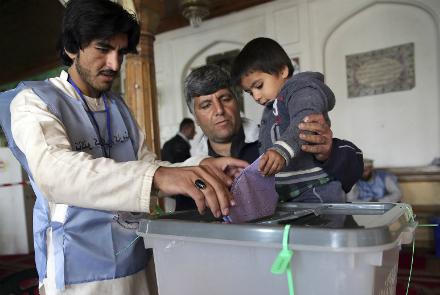Officials from the Independent Election Commission (IEC) on Thursday raised concerns over reports that another 14 polling centers will be closed due to security problems--this in addition to the 431 polling centers already closed. Official numbers, however, have yet to be shared with the IEC, and this is also a cause for concern.
“The security institutions told the election commission that additional centers are to be closed, but they said the actual numbers will be shared only after the assessment is complete,” said Zabiullah Sadat, spokesman of the IEC.
This delay of information-sharing between organizations worries watchdog organizations:
“There are serious concerns about it. We previously asked the commission to coordinate with the security institutions and share the details of those centers which will remain open,” said Naeem Asghari, head of the Transparent Election Foundation of Afghanistan (TEFA).
There are concerns about technology, with observers noting that if the biometric identification devices stop working, there is no backup plan for preventing voter fraud. On the upside, however, IEC officials have claimed to have completed the process of delivering those devices—and other election materials--to 229 districts of the country.
The Taliban have made threats, both to individuals who would participate in the election, and to telecom companies whose infrastructure will be needed for transmitting identification data and voting tallies to national databases.
But despite threats, many Afghans have vowed to participate in the elections from provinces across the country:
“There are threats, but we will go and exercise our right to vote,” said Munira, from Balkh province, in the north.
“Women in Kandahar are fully prepared to vote in the elections,” said Rangeena Anwari, from Afghanistan’s south.
“The people have grave concerns in this province; we call on the security institutions to provide security for the elections,” said Ahmad Shahrani, a resident of the central province of Ghor.
“We are optimistic about the elections and hope that there will be a transparent election,” said Habiba Jamshidi, a resident in western Herat.
The Afghan Ministry of Interior (MoI) has assured the country that Afghan security forces are on red alert to secure the process.
“Members of Afghan security and defense forces have been deployed in 34 provinces of Afghanistan,” said MoI spokesman Nusrat Rahimi.



Comment this post